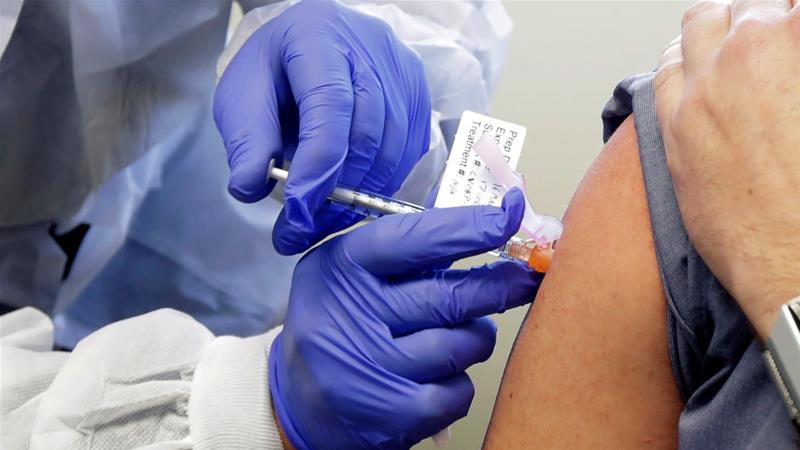Covid-19 vaccine trial on humans starts as UK warns restrictions could stay in place until next year
cientists in the UK will begin trials of a potential Covid-19 vaccine on humans Thursday, as the government warns it could have to rely on social distancing measures until next year assuming no vaccine or treatment is found before then.
England’s Chief Medical Officer Chris Whitty said Wednesday that the probability of having a vaccine or treatment “anytime in the next calendar year” is “incredibly small.”
“I think we should be realistic about that, we’re going to have to rely on other social measures,” Whitty said.
Coronavirus Diaries
How fighting coronavirus taught me about the gift of connection by Brooke Baldwin
I’m the quarantine buffer between three generations in one house by S. Mitra Kalita
Friendly waves help fill the void in Los Angeles by Stephanie Elam
San Francisco’s new normal is very abnormal by Dan Simon
I have a silk mask to match my wedding dress by Valentina di Donato
More CNN coronavirus diaries …
The human vaccine trial has been developed by scientists at Oxford University’s Jenner Institute and will begin Thursday, the university confirmed to CNN.
Sarah Gilbert, professor of vaccinology at Oxford University, told The Times of London she was “80% confident” that the vaccine being developed by her team would work. It is hoped about a million doses could ready by September.
The Oxford vaccine candidate, called ChAdOx1 nCoV-19, is made from a harmless chimpanzee virus.
“Vaccines made from the ChAdOx1 virus have been given to more than 320 people to date and have been shown to be safe and well tolerated, although they can cause temporary side effects, such as a temperature, headache or sore arm,” according to the University of Oxford.
The UK has been in so-called lockdown, with restrictions on leaving the house except for essential reasons and daily exercise in force since March 23.
As the number of new coronavirus cases start to plateau, the government is now turning to the next part of its strategy to combat the virus: test, track and trace.
The government has repeatedly promised the UK will test 100,000 people for Covid-19 per day by the end of April. That is just seven days away, yet government figures released Wednesday showed only 13,522 people had been tested in a 24-hour period.
First Secretary of State Dominic Raab, who is deputizing for Prime Minister Boris Johnson as he recovers from coronavirus, told Parliament on Wednesday the UK’s capacity for tests is now at “40,000 a day,” raising questions as to why that number of tests is not actually being carried out.
Raab said he expects to see “an exponential increase” in the next week and the government is making “good progress” and will meet its target.


